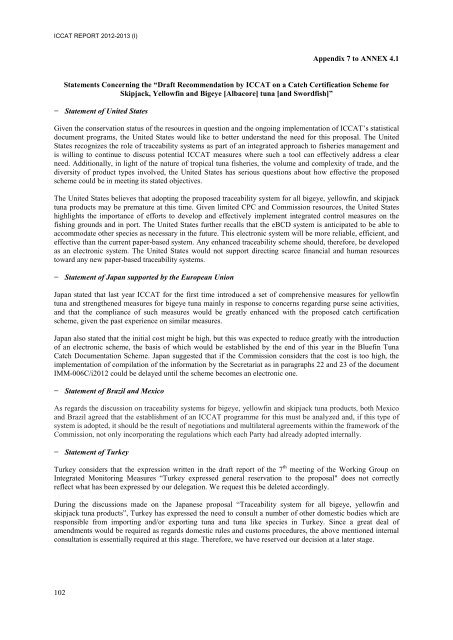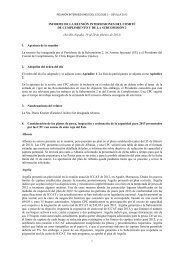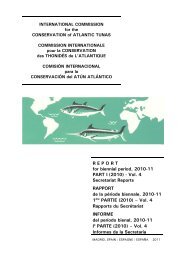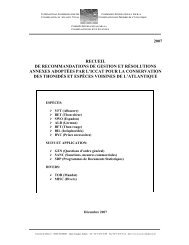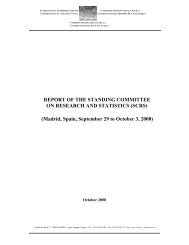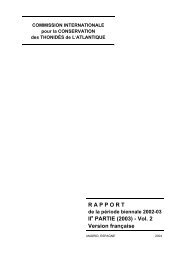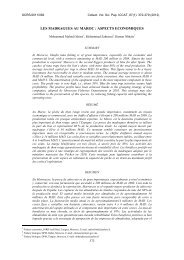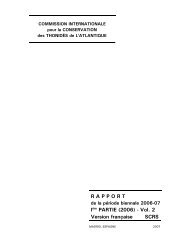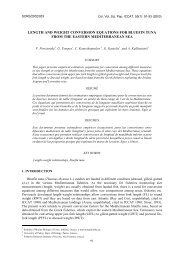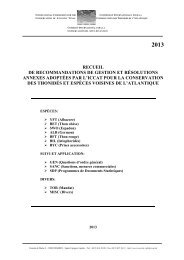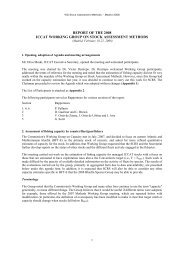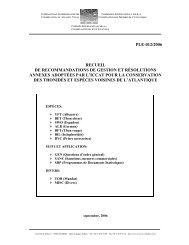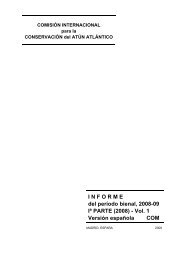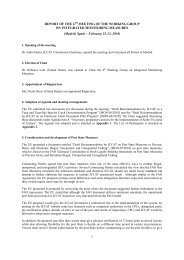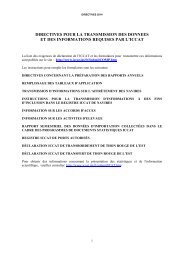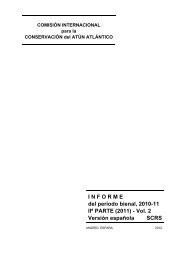E - Iccat
E - Iccat
E - Iccat
Create successful ePaper yourself
Turn your PDF publications into a flip-book with our unique Google optimized e-Paper software.
ICCAT REPORT 2012-2013 (I)<br />
Appendix 7 to ANNEX 4.1<br />
Statements Concerning the “Draft Recommendation by ICCAT on a Catch Certification Scheme for<br />
Skipjack, Yellowfin and Bigeye [Albacore] tuna [and Swordfish]”<br />
− Statement of United States<br />
Given the conservation status of the resources in question and the ongoing implementation of ICCAT’s statistical<br />
document programs, the United States would like to better understand the need for this proposal. The United<br />
States recognizes the role of traceability systems as part of an integrated approach to fisheries management and<br />
is willing to continue to discuss potential ICCAT measures where such a tool can effectively address a clear<br />
need. Additionally, in light of the nature of tropical tuna fisheries, the volume and complexity of trade, and the<br />
diversity of product types involved, the United States has serious questions about how effective the proposed<br />
scheme could be in meeting its stated objectives.<br />
The United States believes that adopting the proposed traceability system for all bigeye, yellowfin, and skipjack<br />
tuna products may be premature at this time. Given limited CPC and Commission resources, the United States<br />
highlights the importance of efforts to develop and effectively implement integrated control measures on the<br />
fishing grounds and in port. The United States further recalls that the eBCD system is anticipated to be able to<br />
accommodate other species as necessary in the future. This electronic system will be more reliable, efficient, and<br />
effective than the current paper-based system. Any enhanced traceability scheme should, therefore, be developed<br />
as an electronic system. The United States would not support directing scarce financial and human resources<br />
toward any new paper-based traceability systems.<br />
− Statement of Japan supported by the European Union<br />
Japan stated that last year ICCAT for the first time introduced a set of comprehensive measures for yellowfin<br />
tuna and strengthened measures for bigeye tuna mainly in response to concerns regarding purse seine activities,<br />
and that the compliance of such measures would be greatly enhanced with the proposed catch certification<br />
scheme, given the past experience on similar measures.<br />
Japan also stated that the initial cost might be high, but this was expected to reduce greatly with the introduction<br />
of an electronic scheme, the basis of which would be established by the end of this year in the Bluefin Tuna<br />
Catch Documentation Scheme. Japan suggested that if the Commission considers that the cost is too high, the<br />
implementation of compilation of the information by the Secretariat as in paragraphs 22 and 23 of the document<br />
IMM-006C/i2012 could be delayed until the scheme becomes an electronic one.<br />
− Statement of Brazil and Mexico<br />
As regards the discussion on traceability systems for bigeye, yellowfin and skipjack tuna products, both Mexico<br />
and Brazil agreed that the establishment of an ICCAT programme for this must be analyzed and, if this type of<br />
system is adopted, it should be the result of negotiations and multilateral agreements within the framework of the<br />
Commission, not only incorporating the regulations which each Party had already adopted internally.<br />
− Statement of Turkey<br />
Turkey considers that the expression written in the draft report of the 7 th meeting of the Working Group on<br />
Integrated Monitoring Measures “Turkey expressed general reservation to the proposal" does not correctly<br />
reflect what has been expressed by our delegation. We request this be deleted accordingly.<br />
During the discussions made on the Japanese proposal “Traceability system for all bigeye, yellowfin and<br />
skipjack tuna products”, Turkey has expressed the need to consult a number of other domestic bodies which are<br />
responsible from importing and/or exporting tuna and tuna like species in Turkey. Since a great deal of<br />
amendments would be required as regards domestic rules and customs procedures, the above mentioned internal<br />
consultation is essentially required at this stage. Therefore, we have reserved our decision at a later stage.<br />
102


